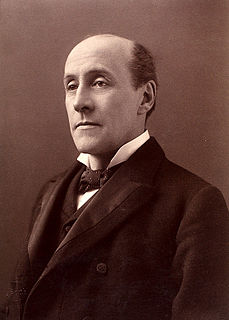A Quote by C. S. Lewis
The books or the music in which we thought the beauty was located will betray us if we trust to them; it was not in them, it only came through them,and what came through them was longing. These things—the beauty, the memory of our own past—are good images of what we really desire; but if they are mistaken for the thing itself they turn into dumb idols,breaking the hearts of their worshippers. For they are not the thing itself; they are only the scent of a flower we have not found, the echo of a tune we have not heard, news from a country we have never yet visited.
Related Quotes
Beauty—or the desire to be beautiful—is in itself a dangerous motivation. Someone (I forgot who) once said, ‘Does the person who loves someone for their beauty really love them?’ So don’t focus on beauty ... a respectable appearance is sufficient to make people more interested in your soul. It is the sum of our experiences that makes us interesting, and having been through a time in your life in which you were in a bad place (or what you perceived as a bad place) physically, can be useful. It can even be necessary.
Some feelings are quite untranslatable; no language has yet been found for them. They gleam upon us beautifully through the dim twilight of fancy, and yet when we bring them close to us, and hold them up to the light of reason, lose their beauty all at once, as glow worms which gleam with such a spiritual light in the shadows of evening, when brought in where the candles are lighted, are found to be only worms like so many others.
It was the upward-reaching and fathomlessly hungering, heart-breaking love for the beauty of the world at its most beautiful, and, beyond that, for that beauty east of the sun and west of the moon which is past the reach of all but our most desperate desiring and is finally the beauty of Beauty itself, of Being itself and what lies at the heart of Being.
Whoever accepts the higher mission of art and comes nearer and nearer to it through his creative activity, will then go on from art to the Spirit deep within his own self... The philosophic search for enlightenment and the artist's search for perfection of work can meet and unite. Art can be a path to spiritual enlightenment but not to complete and lasting enlightenment. It can be born out of, and can give birth itself to, only Glimpses. For art is a search for beauty, which by itself is not enough. Beauty must be supported by virtue and both require wisdom to guide them.
In the deep, unwritten wisdom of life there are many things to be learned that cannot be taught. We never know them by hearing them spoken, but we grow into them by experience and recognize them through understanding. Understanding is a great experience in itself, but it does not come through instruction.
To me, then, true criticism consists in trying to find out the intrinsic worth of the thing itself, and not in attributing a quality to that thing. You attribute a quality to an environment, to an experience, only when you want to derive something from it, when you want to gain or to have power or happiness. Now this destroys true criticism. Your desire is perverted through attributing values, and therefore you cannot see clearly. Instead of trying to see the flower in its original and entire beauty, you look at it through coloured glasses, and therefore you can never see it as it is.
Of course we believe these things. We believe in social security. We believe in work for the unemployed. We believe in saving homes. Cross our hearts and hope to die! We believe in all these things. But we do not like the way that the present administration is doing them. Just turn them over to us. We will do all of them, we will do more of them, we will do them better and, most important of all, the doing of them will not cost anybody anything!
To achieve accurate knowledge of others, if such a thing were possible, we could only ever arrive at it through the slow and unsure recognition of our own initial optical inaccuracies. However, such knowledge is not possible: for, while our vision of others is being adjusted, they, who are not made of mere brute matter, are also changing; we think we have managed to see them more clearly, but they shift; and when we believe we have them fully in focus, it is merely our older images of them that we have clarified, but which are themselves already out of date.
I have no need to take up each thing that wants to throw its cause on us and show that it is occupied only with itself, not with us, only with its good, not with ours. Look at the rest for yourselves. Do truth, freedom, humanity, justice, desire anything else than that you grow enthusiastic and serve them?
Nations do not think, they only feel. They get their feelings at second hand through their temperaments, not their brains. A nation can be brought -- by force of circumstances, not argument -- to reconcile itself to any kind of government or religion that can be devised; in time it will fit itself to the required conditions; later it will prefer them and will fiercely fight for them.



































